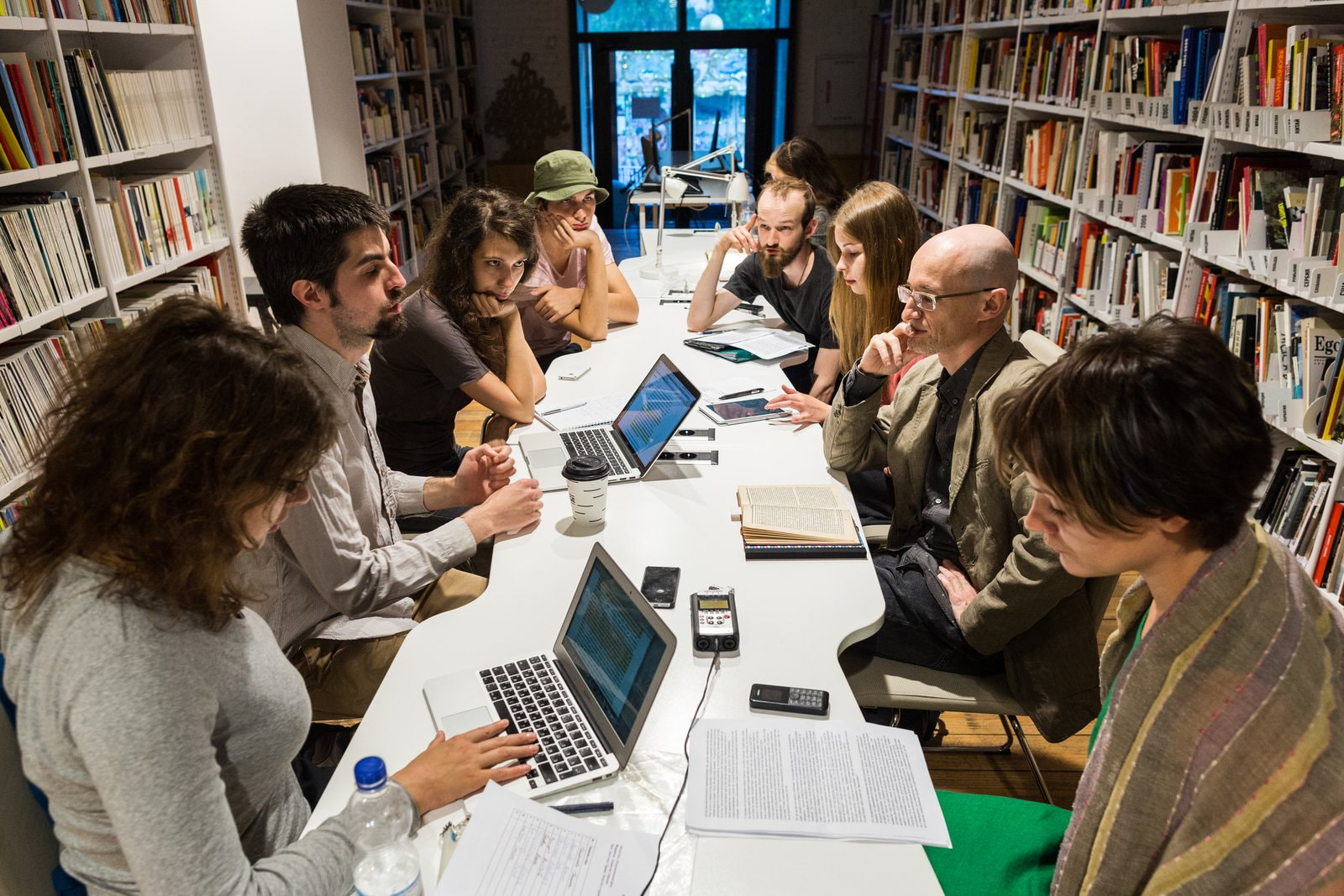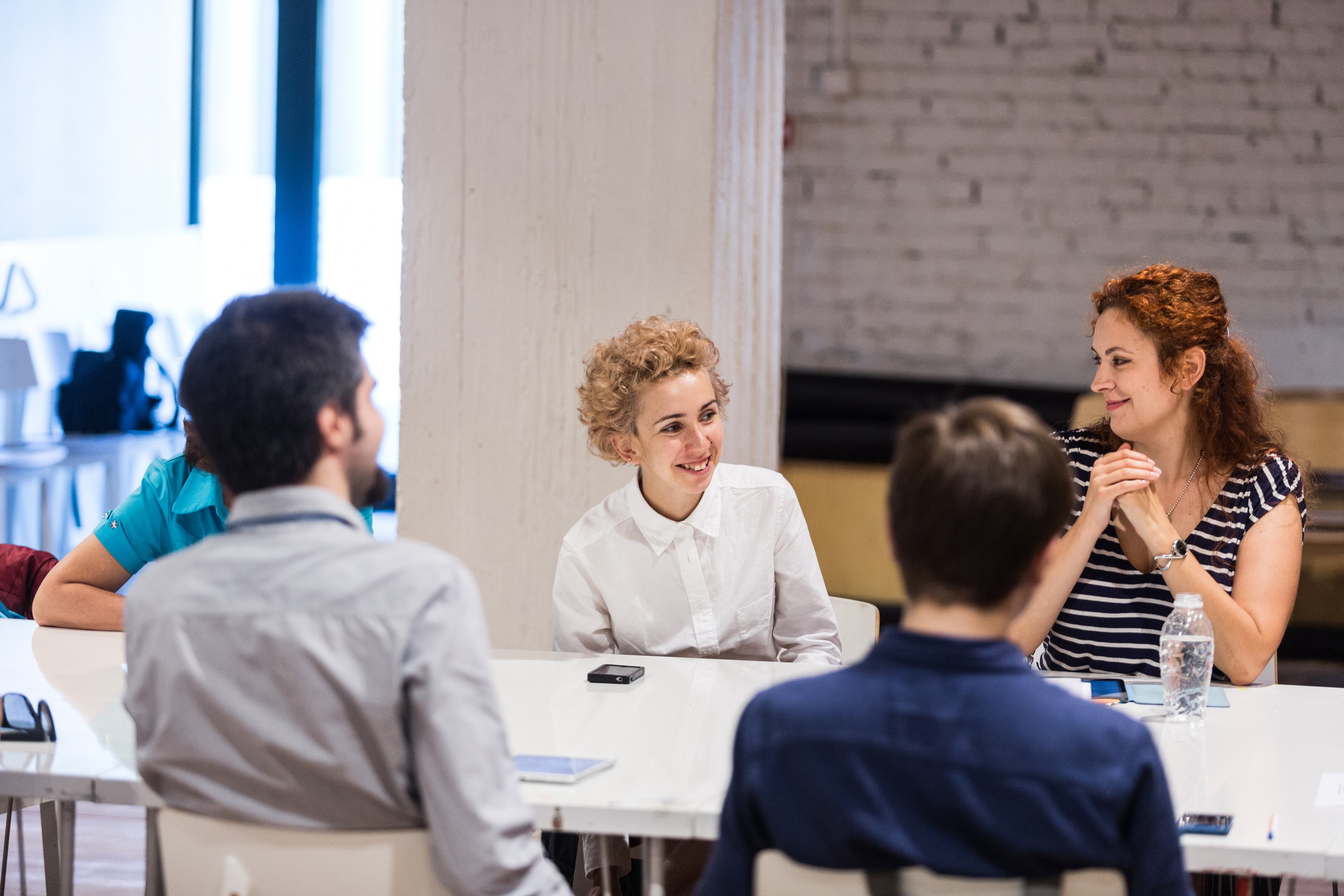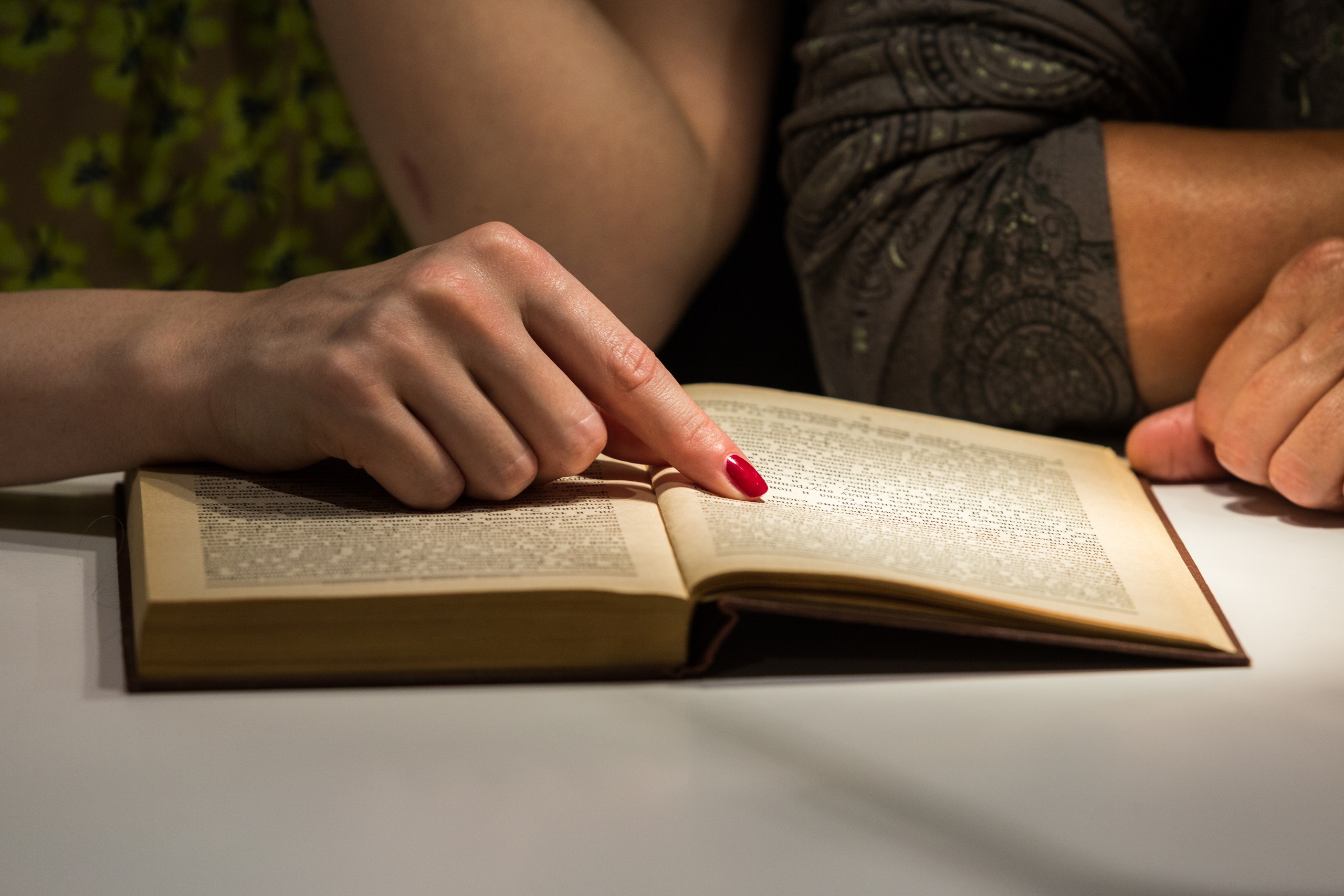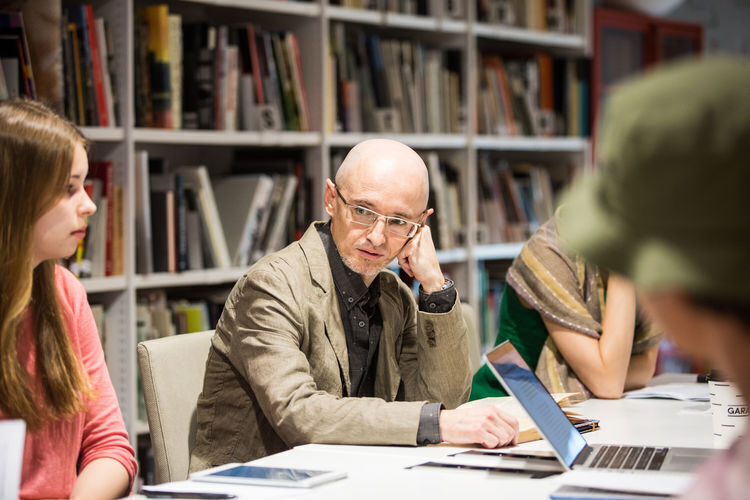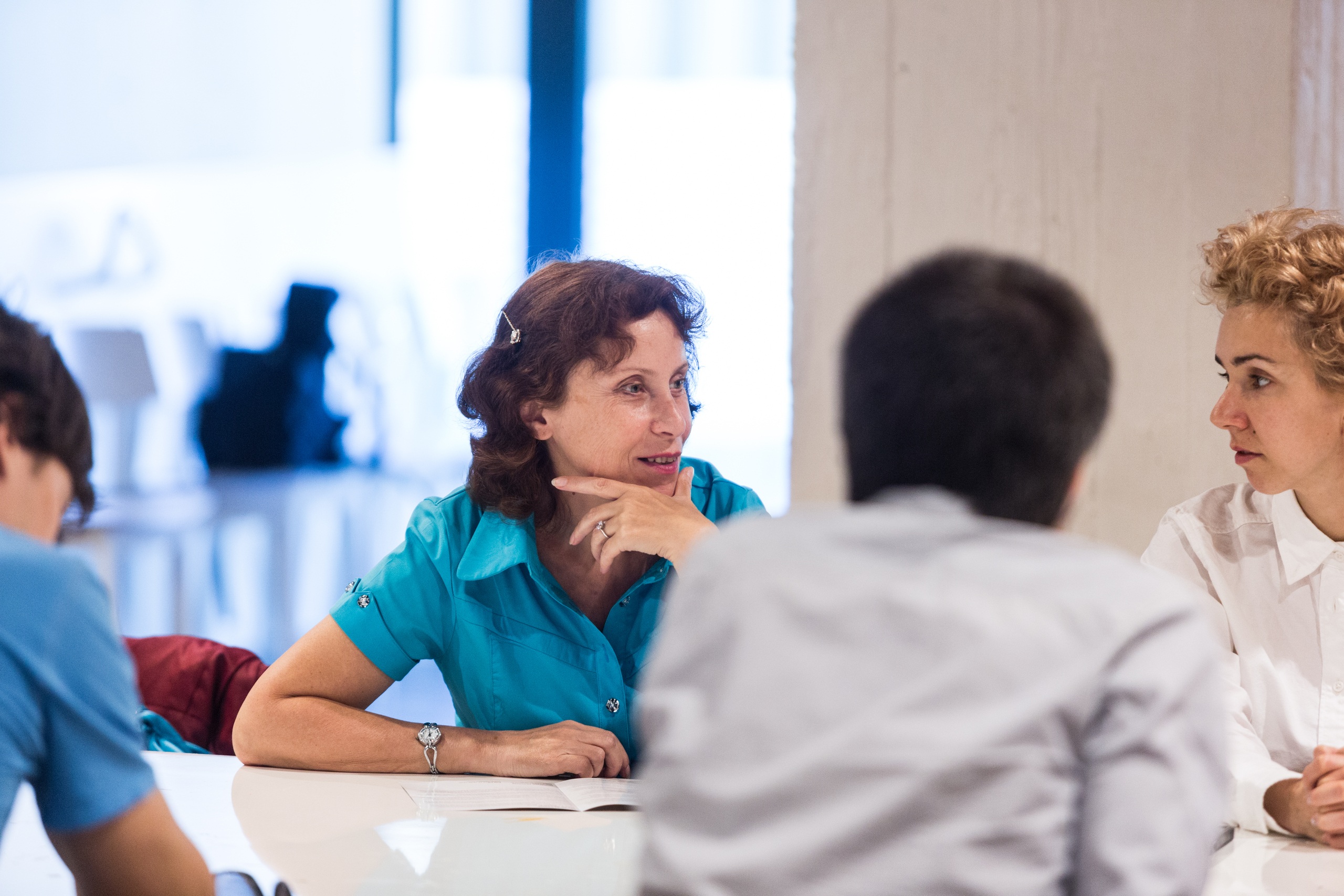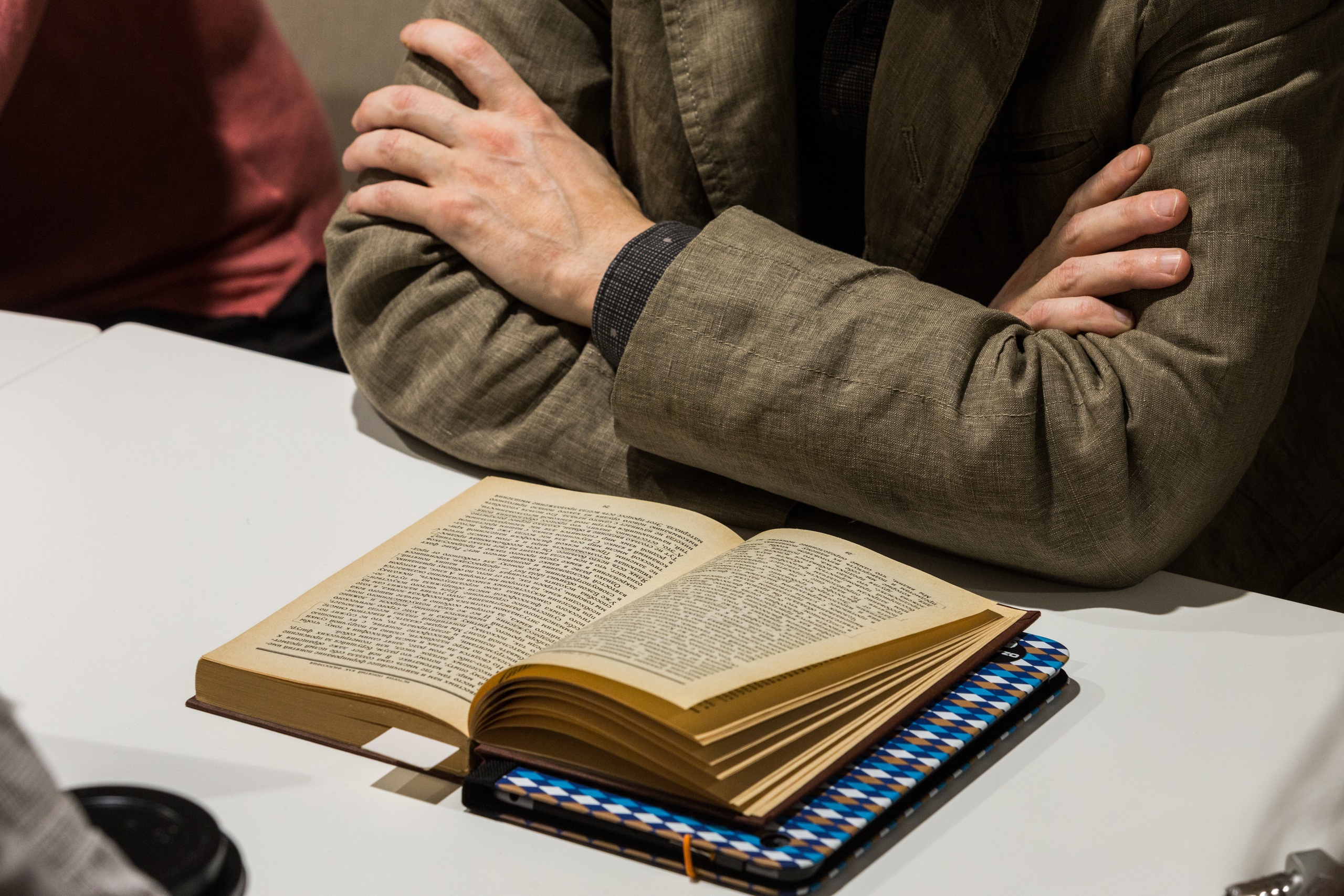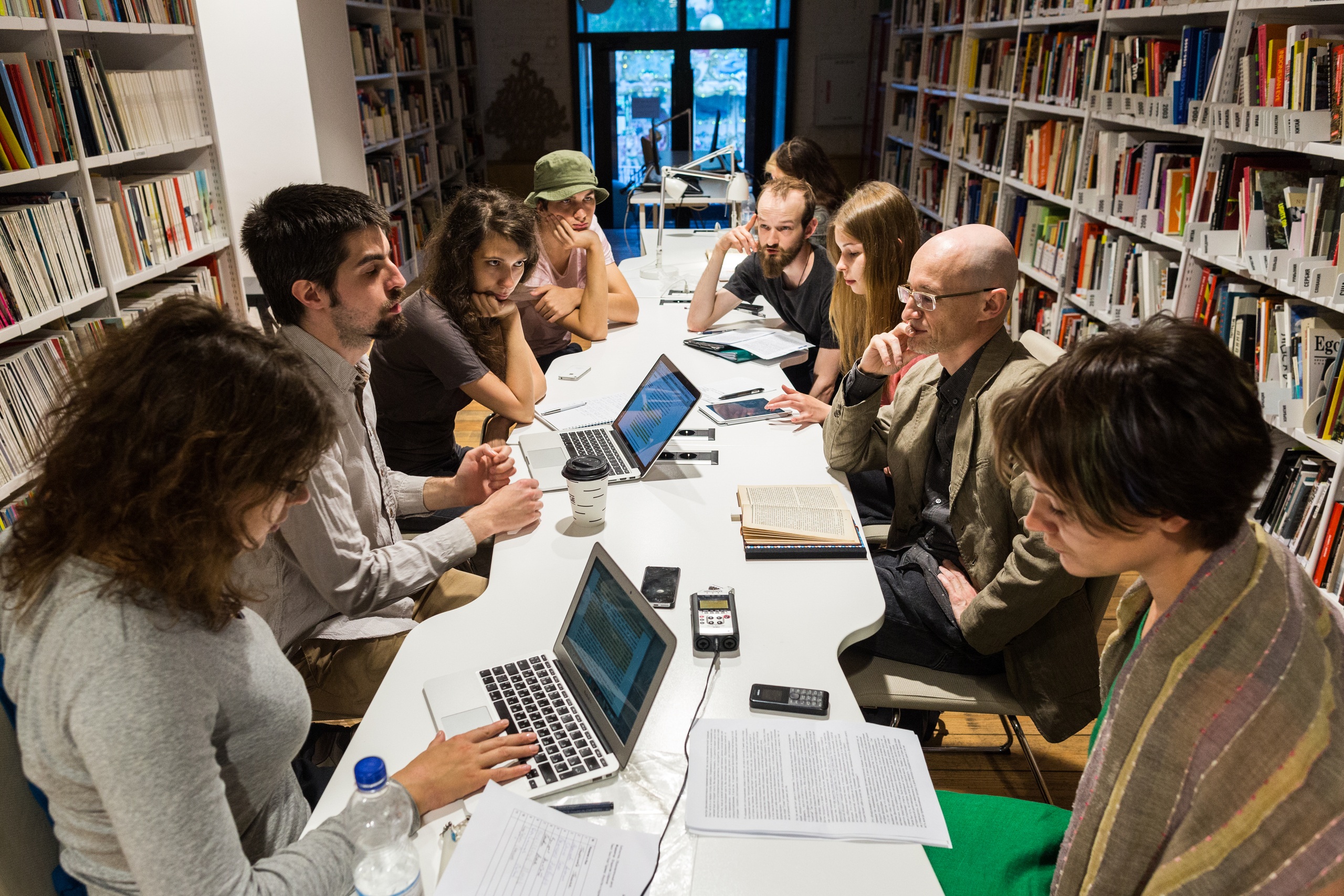In 2016 Garage Library invites its readers to explore seminal works on world art history and theory in the new season’s reading groups.
Visitors are invited to get a library membership, study the suggested texts in their spare time and then discuss them in groups.
In February — June 2016 reading groups will be offered new subjects for discussion, focusing on antinomies in art history and the discourse that envisages art as a transfer of ideas to various media.
One reading group will be devoted to Lacanian approach to psychoanalysis and its cultural implications. The group studying key Marxist texts will continue its meetings.
Reading Group 1
ANTINOMIES IN ART HISTORY
As well as the totality of art works, art history is made by the system of ideas that form around art and develop alongside artistic practices. This reading group takes the works of American art critic Hal Foster as its starting point and focuses on the emergence and development of antinomies such as autonomous vs. socially informed art; text vs. context; form vs. content in art. The group will discuss the concepts of artistic will, symbolic form, and spectatorship among others.
Moderator: Vlad Sofronov (Ph.D.) is an independent researcher, the author of Communist Sensuality: Reading Kierkegaard, Proust, Kafka, Marx (Moscow, 2009), and translator of Slavoj Žižek’s Sublime Object of Ideology and Arthur Lovejoy’s Great Chain of Being, as well as a member of the editorial boards of Logos, Art Magazine, and others.
Reading Group 2
MARXISM AND CONTEMPORARY CULTURE
The tradition of Marxist theory continues to be fundamental to the intellectual landscape of modernity and Marxist perspective on social history still stirs up debate. Studying and discussing the works key to this tradition, this reading group will explore contemporary themes and ideas that have been influenced by Marxism.
Moderator: Vlad Sofronov (Ph.D.) is an independent researcher, the author of Communist Sensuality: Reading Kierkegaard, Proust, Kafka, Marx (Moscow, 2009), and translator of Slavoj Žižek’s Sublime Object of Ideology and Arthur Lovejoy’s Great Chain of Being, as well as a member of the editorial boards of Logos, Art Magazine, and others.
Reading Group 3
ART DISCOURSE: FROM IDEA TO MEDIA
How do we speak of an artwork? Where do we start and what should we take into account? The half-a-century search for an answer to those questions has followed a trajectory from the high art-inspired discourse to the rather down-to-earth archaeology of artistic media. This group will focus on works by Russian, French and American authors, starting with the basics of semiotic analysis and exploring its boundaries and what lies beyond them, to try and understand how one “learns to use one’s eyes” and what the analysis of “visual patterns” can teach us.
Moderator: Nina Sosna (PhD in Philosophy) is a media theorist and philosopher, a lecturer at the Higher School of Economics, and Deputy Chief Editor at Philosophy Journal. She is the author of Photograph and Image: The Visual, the Obscure, the Phantomlike (Moscow: 2014), the editor of Media: Between Magic and Technology (Moscow: 2014), and translated Jean-Luc Marion's The Crossing of the Visible (Moscow: 2010).
Reading Group 4
BASIC CATEGORIES OF LACANIAN PSYCHANALYSIS AND CULTURE
Psychoanalytic discourse has informed both our understanding of art and philosophy in the 20th century, and the way we speak about them. According to Jacques Lacan, erroneous interpretations of Freud’s ideas have created theoretical cacophony in humanity’s understanding of itself. Studying the texts key to psychoanalytic tradition, this group will focus on the implications and the opportunities of psychoanalytic discourse in culture.
Moderator: Alexandr Bronnikov is a practicing psychoanalyst, a participant of Rennes 2 (France) and Moscow State Psychology and Pedagogics University joint education program. He is a lecturer in Lacanian psychoanalysis at the RSUH, and has trained in psychoanalytic clinics of Paris.
